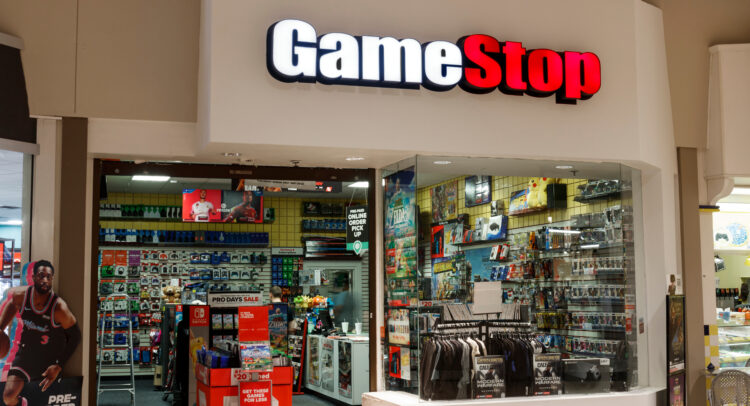The last few years with video game retailer GameStop (NYSE:GME) have been puzzling, to say the least. Now, GameStop is up over 3% on the news of its latest plan to turn things around, and those plans have nothing to do with video games. Indeed, the latest plan is for GameStop to invest. But not in itself or its employees, but rather in other companies altogether. Yes, GameStop handed over control of the company’s checkbook to CEO Ryan Cohen, who now has the power to buy equities instead of just buying short-term debt.
Pick the best stocks and maximize your portfolio:
- Discover top-rated stocks from highly ranked analysts with Analyst Top Stocks!
- Easily identify outperforming stocks and invest smarter with Top Smart Score Stocks
The filing that detailed Cohen’s new power also noted: “Such investments align the interests of the Company with the interests of related parties because it places the personal resources of Mr. Cohen at risk in substantially the same manner as the Company in connection with investment decisions made on behalf of the Company.” Michael Pachter of Wedbush, meanwhile, referred to the move as “inane” and “alarming.”
GameStop Needs to Do Something
While perhaps you may not go quite as far as Pachter did in describing this latest stunt, it’s abundantly clear that GameStop needs to do something, and fast. Several previous efforts have done GameStop little good, likely because its primary business—buying used games from people and reselling them at impressive markups—is on its last legs as digital-only becomes the wave of the future.
Indeed, GameStop’s last earnings report didn’t look all that great; while it managed to reduce its losses significantly—going from $92.6 million to $3.1 million over the course of a year—sales are still in decline, and that means GameStop needs to do something to keep money coming in. Investing in other companies could do that, but at a significant overall risk and cost to the business itself. Particularly to its brand image; can it even call itself “GameStop” anymore if the games have stopped?
Is GameStop a Buy, Sell, or Hold?
Overall, only one analyst, Michael Pachter, is covering GME stock and has assigned a Sell rating. After a 38.4% loss in its share price over the past year, the average GME price target of $6 per share implies 60.86% downside risk.




















